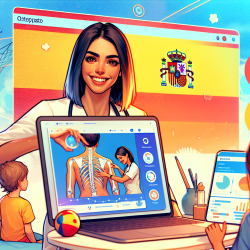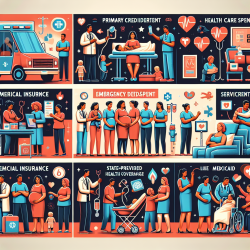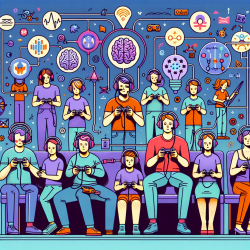As a practitioner working with individuals who have communication disorders, it's essential to continuously improve your counseling skills. The research article "Counseling Persons with Communication Disorders and Their Families" by David M. Luterman offers valuable insights that can enhance your professional practice. Let's delve into some key takeaways from this research and explore how you can implement these findings to better support your clients and their families.
Understanding the Emotional Impact
The article emphasizes the profound emotional impact that communication disorders can have on individuals and their families. Emotions such as grief, anger, guilt, vulnerability, and confusion are common. Recognizing these emotions and understanding the coping cycle—denial, resistance, affirmation, and integration—can help you provide more empathetic and effective counseling.
Adopting a Client-Centered Approach
Dr. Luterman advocates for a shift from traditional counseling methods that focus on informing and persuading to a more client-centered approach. This approach emphasizes listening and valuing the client's perspective, empowering them to make informed decisions. Your role as a clinician is to illuminate possibilities, not dictate solutions.
Effective Counseling Techniques
The research outlines specific counseling techniques that can be integrated into both the diagnostic and therapeutic processes:
- Active Listening: Show genuine interest and understanding by reflecting on what the client says.
- Empathy: Validate the client's feelings and experiences without judgment.
- Open-Ended Questions: Encourage clients to express their thoughts and feelings in detail.
- Problem-Centered Counseling: Focus on the specific issues that emotionally upset the client, providing targeted support.
Group Counseling and Family Dynamics
Group counseling can be a powerful tool, but it's crucial to allow group members to take control rather than keeping the sessions clinician-directed. Understanding family dynamics is equally important. The family system is interdependent, and focusing solely on the client is likely to result in limited success. Engage with spouses, siblings, grandparents, and parents to create a supportive environment.
Continuous Professional Development
Dr. Luterman highlights the need for ongoing professional development in counseling. Many training programs lag behind the field's needs, contributing to professional burnout. By continually seeking out new research, attending conferences, and participating in webinars, you can stay updated and enhance your counseling skills.
Conclusion
Implementing the insights from "Counseling Persons with Communication Disorders and Their Families" can significantly improve your counseling effectiveness. Remember, your growth as a clinician is crucial for helping your clients and their families navigate the challenges of communication disorders.
To read the original research paper, please follow this link: Counseling Persons with Communication Disorders and Their Families










